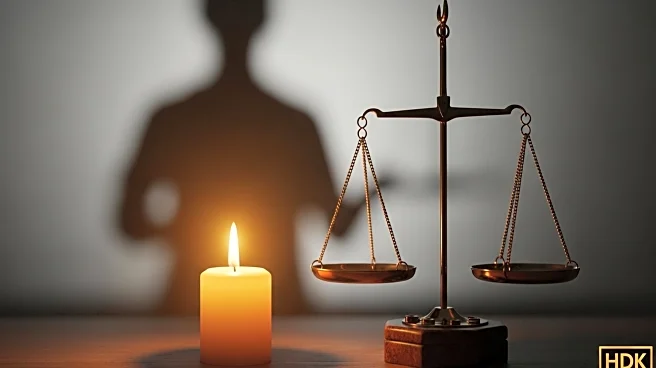What's Happening?
The family of Steve Biko, a prominent South African anti-apartheid activist, has expressed confidence that a new inquest into his death will lead to prosecutions. Biko died from a brain injury in 1977 while in police custody, and his death has long been a symbol of the struggle against apartheid. The inquest, held at the High Court in Gqeberha, aims to address the circumstances surrounding his death, which was initially attributed to an accidental head injury. However, former officers have since admitted to assaulting Biko, though no one has been prosecuted.
Why It's Important?
The inquest into Steve Biko's death is significant as it represents a broader effort to address historical injustices and hold those responsible accountable. It highlights the ongoing struggle for justice in post-apartheid South Africa and the challenges of reconciling with a violent past. The outcome of this inquest could set a precedent for other cases related to apartheid-era crimes, potentially leading to further prosecutions and a deeper understanding of the systemic abuses that occurred during that time.
What's Next?
The inquest is set to continue, with the next hearing scheduled for November. As the proceedings unfold, there may be increased pressure on the South African government to pursue prosecutions and implement reforms to address the legacy of apartheid. The case could also inspire similar efforts in other countries grappling with historical injustices, prompting discussions about truth, reconciliation, and accountability on a global scale.










